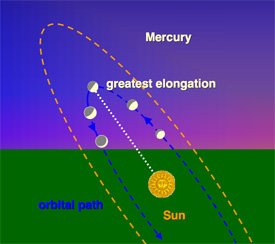Are you listening to Astronomy.FM? If not, you should join the audience of over 25,000 listeners in 85 countries who are enjoying this amazing free service. Astronomy.FM is billed as “The only all-Astronomy radio station in the Known Universe.” You can listen to this one-of-a-kind radio station on-line anytime, as it is streaming 24 hours a day and it includes both wonderful original astronomy programming and replays of many great astronomy shows and podcasts including Astronomy Cast, 365 Days of Astronomy, Planetary Radio, 60-Second Science and Slacker Astronomy, and also they have just recently added the Weekly Space Hangouts to their lineup. They also have science and astronomy news – the kind of stuff you really want to hear! (As Astronomy.FM announcer Rob Berthiaume said, “Who cares about Snooki? Give me more supernovae!”
What is really awesome about Astronomy.FM (besides their great programming) is that it is an all-volunteer organization. Everyone who you hear on-air does it for their love of astronomy.
Right now, Astronomy.FM is having their annual funding drive. They are trying to raise $6,000 for their annual budget. Can you imagine – running a 24-hour radio station for just $6,000 USD?? All revenue is spent on hardware, software, radio programming, and broadcast bandwidth. And 100% of their operational costs are funded solely by listener donations. They receive no government or commercial support, and none of their team members are paid. But, as you can imagine, the streaming fees alone are significant. In addition, with their growing listenership, they also are in need of a back-up server and advanced digital broadcast technology.
Astronomy.FM has some wonderful talent. On-air personality and Program Director Michael Foerster has an amazing voice that I could listen to all day, as well as having a wealth of knowledge about space and astronomy. Rob Keown, Tavi Greiner, and Marleen Bryan are also just some of the other wonderful voices you’ll hear on Astronomy.FM.
If you are already a listener, please consider donating to make sure this great service can remain online. If you aren’t familiar with Astronomy.FM, check it out, and enjoy all their great programming. And then consider supporting it. If you are interested in sharing your talents, here’s the “Contact” page for Astronomy.FM
Anything you can contribute will make a big difference, as they need to make their goal of $6,000 soon. I just donated and I hope you will too.











